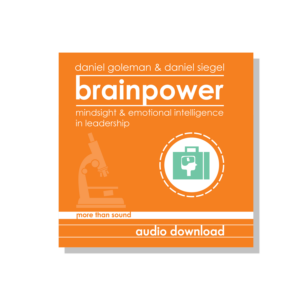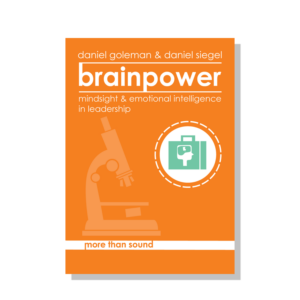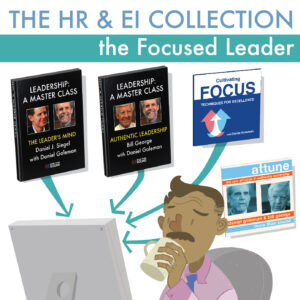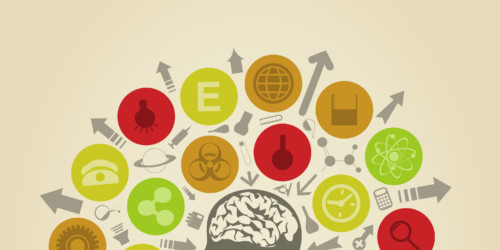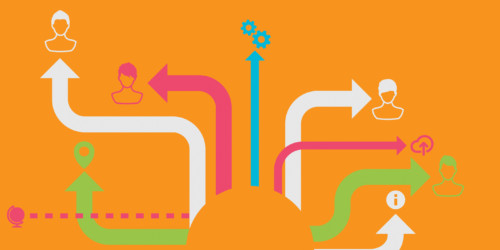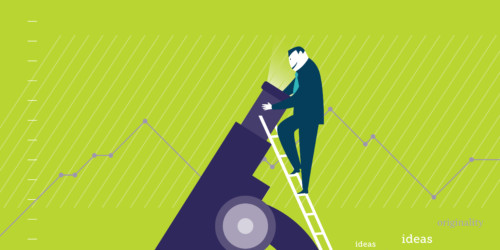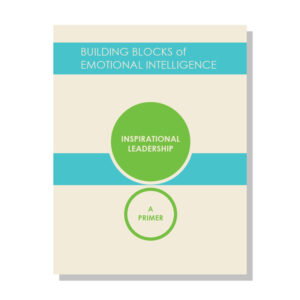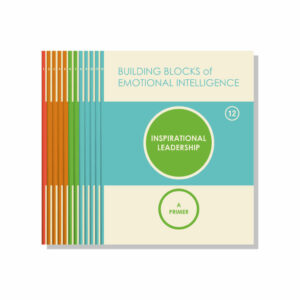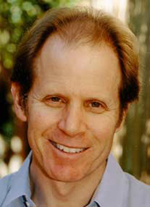
Daniel Siegel
Daniel SiegelEmotion is not just some “primitive” remnant of an earlier reptilian evolutionary past. Emotion directs the flow of activation (energy) and establishes the meaning of representations (information processing) for the individual. It is not a single, isolated group of processes; it has a direct impact on the entire mind.

Dr. Siegel is the clinical professor of psychiatry at UCLA, a faculty member of the Center for Culture, Brain, and Development, and the executive director of the Mindsight Institute. The Mindsight Institute is an educational organization offering online and in-person lectures/courses that focus on how developing mindsight can be beneficial to individuals, families, and communities. He believes that examining the intersection of human relationships and basic biological processes is of utmost importance, as executed in his psychotherapy practices with children, adolescents, adults, couples, and families. He also serves as the Medical Director of the LifeSpan Learning Institute, and on the advisory board at the Blue School in NYC, which has based its curriculum around Siegel’s Mindsight approach. He is also the founding co-director of the Mindful Awareness Research Center, and a Distinguished Fellow of the American Psychiatric Association (among several other honorary fellowships).
Siegel’s ability to condense highly complex scientific data into readily understandable information has transformed into a frequently sought after lecturer and speaker across the world. He has addressed diverse local, national, and international groups of mental health professionals, neuroscientists, corporate leaders, educators, parents, public administrators, policy-makers, mediators, judges, and clergy. He has spoken before the King of Thailiand, Pope John Paul II, His Holiness the Dalai Lama, Google University, London’s Royal Society of the Arts, and several TEDx talks. His words and wisdom have appeared most notably in Business Insider, Forbes, Huffington Post, NPR, The New York Times (where he is also on the bestseller list for both The Whole Brain Child and No-Drama Discipline), and Psychology Today.
Dr. Siegel earned his B.S in Biological Sciences at UCLA, his medical degree from Harvard University, and his postgraduate education at UCLA with training in pediatrics and child, adolescent and adult psychiatry. He currently resides in southern California with his family.
Facebook â—Š Twitter â—Š LinkedIn â—Š Youtube
At Key Step Media, Siegel is a conversationalist in The Executive Edge: An Insider’s Guide to Outstanding Leadership, a long book containing Daniel Goleman’s in-depth conversations with respected leaders in executive management, organizational research, workplace psychology, negotiation, and senior hiring. The Executive Edge examines the best practices of top-performing executives. It offers practical guidance for developing the distinguishing competencies that make a leader outstanding.
Every leader needs threshold abilities to get by at work. But in today’s complex business landscape, getting by isn’t enough. It’s the distinguishing competencies that are crucial for success. You need elements that will give you “the executive edge.”
â—Š
Siegel is a guest lecturer on Daniel Goleman”˜s Leadership: A Master Class (DVD, Streaming Video, Training Guide). His segment is called, The Leader’s Mind. In this hour-long video, Siegel and Goleman explain the brain processes behind the most essential aspects of emotional intelligence and leadership (self-mastery, self-awareness, and resonance), and how leaders can use this understanding to optimize their leadership style.
Leadership: A Master Class is a part of the most in-depth program from our HR and EI Collection, the C-Suite Toolkit. It also includes What Makes a Leader: Why Emotional Intelligence Matters by Goleman and Resonant Leadership by Boyatzis.
â—Š
Siegel is also a featured speaker in Goleman’s Wired to Connect: Dialogues on Social Intelligence conversations. Siegel’s segment, Better Parents, Better Spouses, Better People, the pair explore how our relationships shape our emotional habits – and the brain itself. This conversation helps us understand how our parents’ behavior impacts our mental, neural, and social development. You’ll learn how self-reflection and awareness transform relationships, and discover how emotional habits can change at any age. Siegel and Goleman explain how we can free ourselves from the hold of our past to create richer, more balanced relationships.
â—Š
Other Publications:
The Whole Child: 12 Revolutionary Strategies to Nurture Your Child’s Developing Mind â—Š No-Drama Discipline: The Whole-Brain Way to Calm the Chaos â—Š Brainstorm: The Power and Purpose of the Teenage Brain â—Š Parenting from the Inside Out: How a Deeper Self-Understanding Can Help You Raise Children (10th Anniversary Edition) â—Š Mindsight: The New Science of Personal Transformation â—Š The Developing Mind: How Relationships and the Brain Interact to Shape Who We Are â—Š The Mindful Therapist: A Clinician’s Guide to Mindsight and Neural Integration â—Š Pocket Guide to Interpersonal Neurobiology â—Š The Mindful Brain: Reflection and Attunement in the Cultivation of Well-Being â—Š The Neurobiology of ‘We’ â—Š Healing Moments in Psychotherapy (Norton)

